Intro
Learn about Hydrochlorothiazide 12.5 Mg side effects, including diuretic risks, blood pressure impacts, and potential interactions, to manage hypertension and minimize adverse reactions.
Hydrochlorothiazide is a commonly prescribed diuretic medication used to treat high blood pressure and edema. It belongs to the class of thiazide diuretics, which work by increasing the amount of urine produced by the kidneys, thereby helping to remove excess fluid from the body. The 12.5 mg dosage is a relatively low dose, often prescribed for patients who are just starting treatment or for those who are sensitive to the medication. Despite its effectiveness, hydrochlorothiazide 12.5 mg can cause side effects, some of which can be mild and temporary, while others may be more severe and require medical attention.
The importance of understanding the potential side effects of hydrochlorothiazide 12.5 mg cannot be overstated. Patients who are aware of what to expect can better manage their condition, report any unusual symptoms to their doctor, and make informed decisions about their treatment. Furthermore, recognizing the possible side effects can help healthcare providers to monitor their patients more effectively, adjust the dosage or medication as needed, and ensure the best possible outcomes. In this article, we will delve into the common and less common side effects of hydrochlorothiazide 12.5 mg, discuss their implications, and provide guidance on how to manage them.
Hydrochlorothiazide, like all medications, affects people differently. While some individuals may experience no side effects at all, others may encounter a range of symptoms. It's essential to remember that the occurrence of side effects does not necessarily mean that the medication is not working or that it is harmful. Instead, it may indicate that the body is adjusting to the new medication or that the dosage needs to be adjusted. By understanding the potential side effects of hydrochlorothiazide 12.5 mg, patients and healthcare providers can work together to optimize treatment and minimize any adverse effects.
Common Side Effects of Hydrochlorothiazide 12.5 Mg
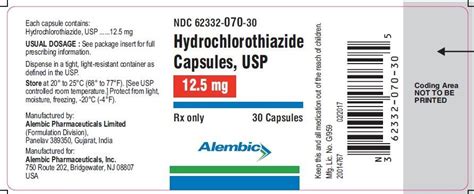
Less Common Side Effects
Less common side effects of hydrochlorothiazide 12.5 mg can include allergic reactions, such as rash, itching, or swelling, particularly of the face, lips, tongue, or throat. Some patients may experience blurred vision, dry mouth, or an increased sensitivity to sunlight, leading to sunburn more easily. Gastrointestinal symptoms like stomach pain, constipation, or loss of appetite can also occur. It's crucial for patients to monitor their body's response to the medication and report any unusual or severe symptoms to their healthcare provider promptly.Severe Side Effects of Hydrochlorothiazide 12.5 Mg
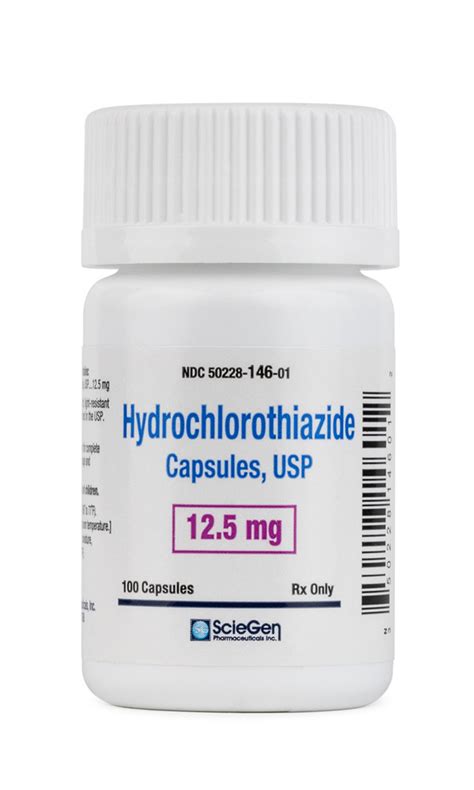
Managing Side Effects
Managing the side effects of hydrochlorothiazide 12.5 mg involves a combination of lifestyle adjustments, monitoring, and in some cases, dosage adjustments. Patients can mitigate the diuretic effect by drinking plenty of water to stay hydrated, especially during hot weather or when exercising. For dizziness, it's recommended to rise slowly from sitting or lying down and to hold onto something stable for support. Dietary changes can help manage gastrointestinal side effects; for instance, eating smaller, more frequent meals can alleviate nausea and vomiting.Special Considerations and Interactions
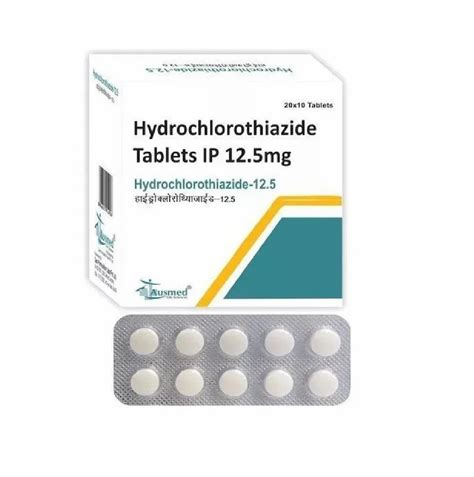
Pregnancy and Breastfeeding
Hydrochlorothiazide 12.5 mg should be used with caution in pregnant women, as it can affect the fetus, particularly if taken during the first trimester. Breastfeeding mothers should also consult their doctor before taking hydrochlorothiazide, as it can pass into breast milk and potentially harm the baby.Long-Term Use of Hydrochlorothiazide 12.5 Mg
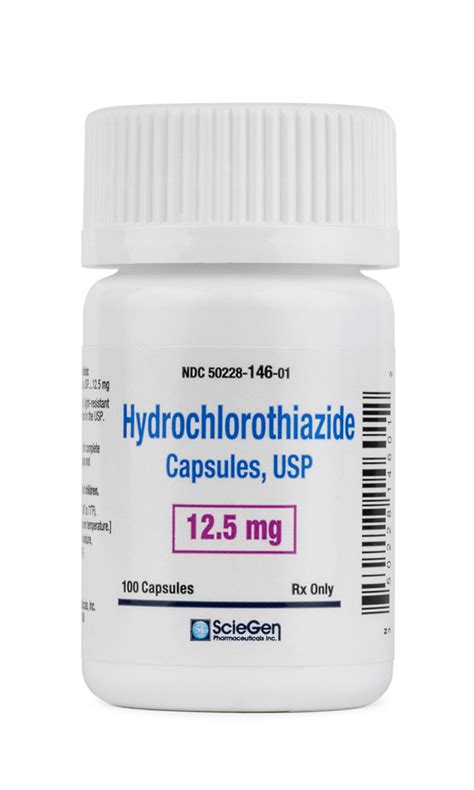
Dosage Adjustments
Dosage adjustments may be necessary based on the patient's response to the medication and the development of any side effects. The goal is to find the lowest effective dose that controls blood pressure or edema with minimal adverse effects. Patients should not adjust their dosage without consulting their healthcare provider, as this can lead to inadequate treatment or increased risk of side effects.Conclusion and Future Directions
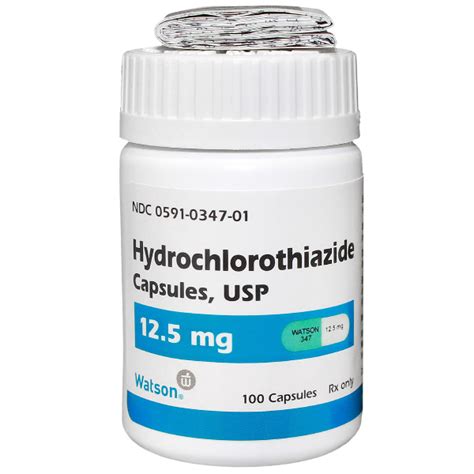
Final Thoughts
As patients navigate their treatment with hydrochlorothiazide 12.5 mg, it's crucial to maintain open communication with their healthcare team. Reporting any changes in symptoms, side effects, or concerns can significantly impact the success of the treatment. With careful management and monitoring, hydrochlorothiazide 12.5 mg can be a valuable tool in controlling blood pressure and edema, improving quality of life for many individuals.What is hydrochlorothiazide 12.5 mg used for?
+Hydrochlorothiazide 12.5 mg is used to treat high blood pressure and edema (swelling caused by excess fluid in the body).
What are the common side effects of hydrochlorothiazide 12.5 mg?
+Common side effects include increased urination, dizziness, headache, nausea, vomiting, and diarrhea.
Can I stop taking hydrochlorothiazide 12.5 mg if I feel better?
+No, do not stop taking hydrochlorothiazide 12.5 mg without consulting your healthcare provider. Stopping the medication abruptly can lead to a rebound effect, causing your condition to worsen.
How long does it take for hydrochlorothiazide 12.5 mg to start working?
+Hydrochlorothiazide 12.5 mg can start working within a few days to a week, but it may take up to 4 weeks to see the full effect on blood pressure.
Can I take hydrochlorothiazide 12.5 mg during pregnancy or breastfeeding?
+Hydrochlorothiazide 12.5 mg should be used with caution in pregnant women and breastfeeding mothers. Consult your healthcare provider before taking the medication in these situations.
